Juvenile Justice System Act 2018: Assessment, Analysis and Capacity Building
1 March,2022
- 1 June,2023
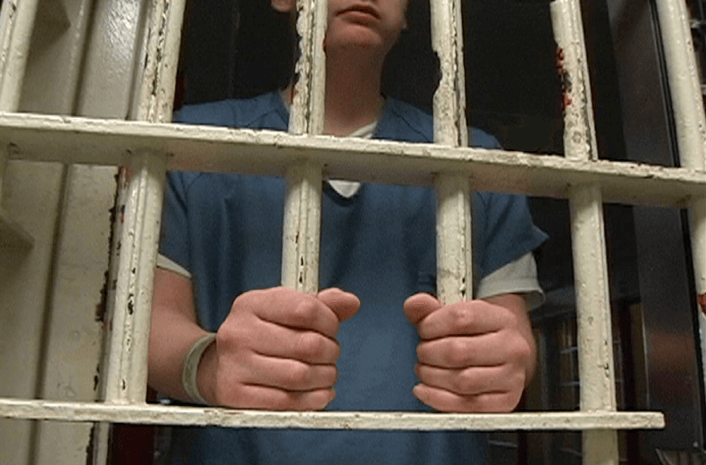
Introduction
In 2018, Pakistan promulgated Juvenile Justice System Act,2018 (JJSA), with the express intention to
improve the state of juvenile offenders, with a focus on their rehabilitation and better access to justice
mechanisms. However, recidivism rates among young offenders remain high. It is evident that despite
de jure efforts, the Juvenile Justice System (JJS) [of Pakistan] continues to face challenges. This study
aims to highlight the gaps between the legislation and the mechanism of law implementation. Instead
of concentrating on remedial legislation in silos, this study aims to focus on the surrounding /
supporting edifice – adequacy of financial and human resources, political will, bureaucratic
commitment, etc. – to develop a holistic overview of the JJS in general, but particularly how to
improve juvenile reintegration into mainstream society.
Young offenders encounter the juvenile justice system because of a vast array of issues. These can be
rooted within the socio-economic structure of society or result from personal hardships. That said, the
causes of juvenile delinquency are not the focus of this study. This study will concentrate on the
question that once the juvenile has committed a crime, has been found guilty, and served a term at a
correctional facility, what happens next?
Grant Partner
Publications
January 29, 2024 | Juvenile Justice Act of Pakistan, 2018: Assessment, Analysis and Capacity Building | Dr. Rabia Chaudhry
January 29, 2024 | Training Manual | Arfeen Baig & Dr. Rabia Chaudhry
Events
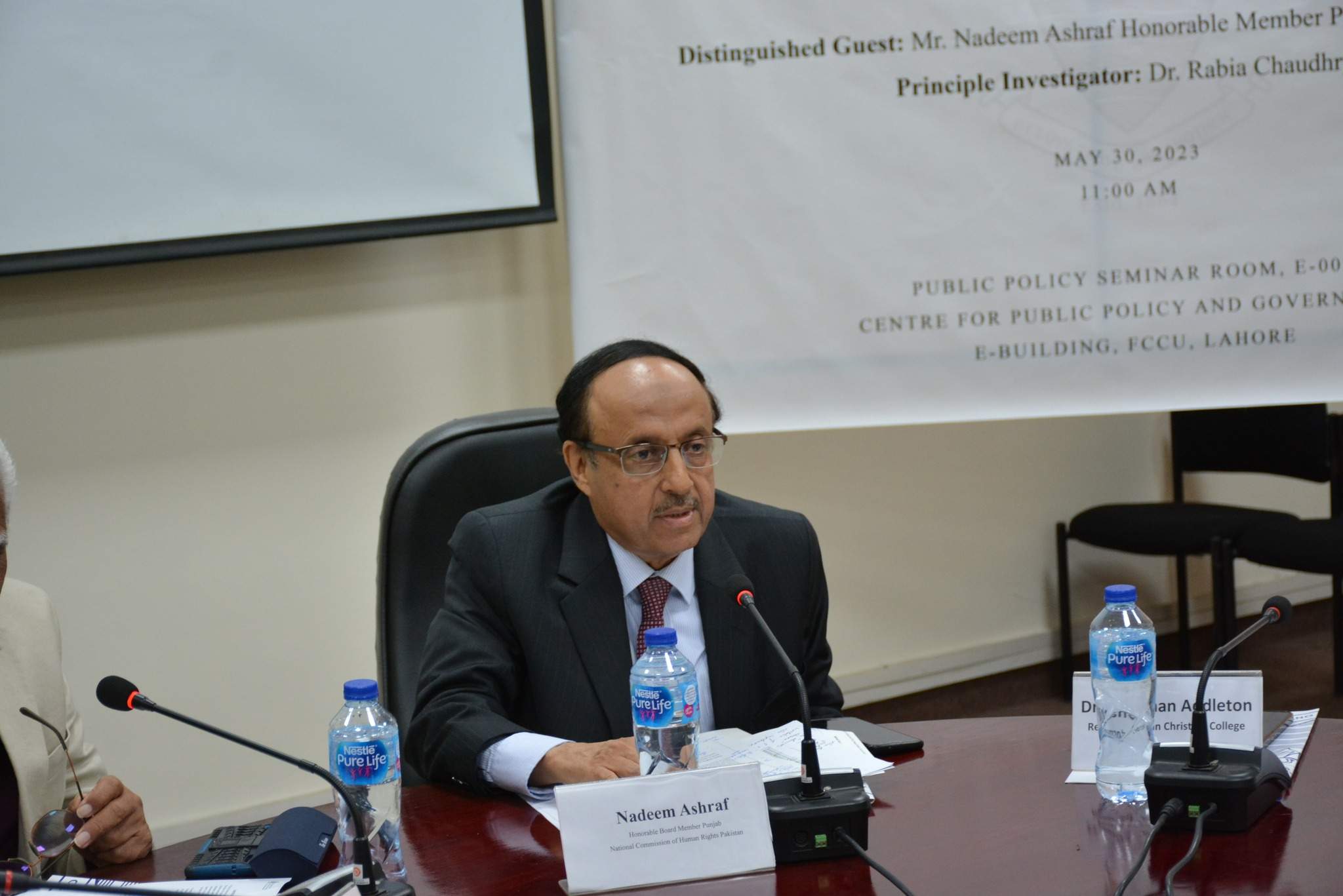
 May 30, 2023 - 11:00 am
| May 30, 2023 - 4:00 pm
May 30, 2023 - 11:00 am
| May 30, 2023 - 4:00 pm
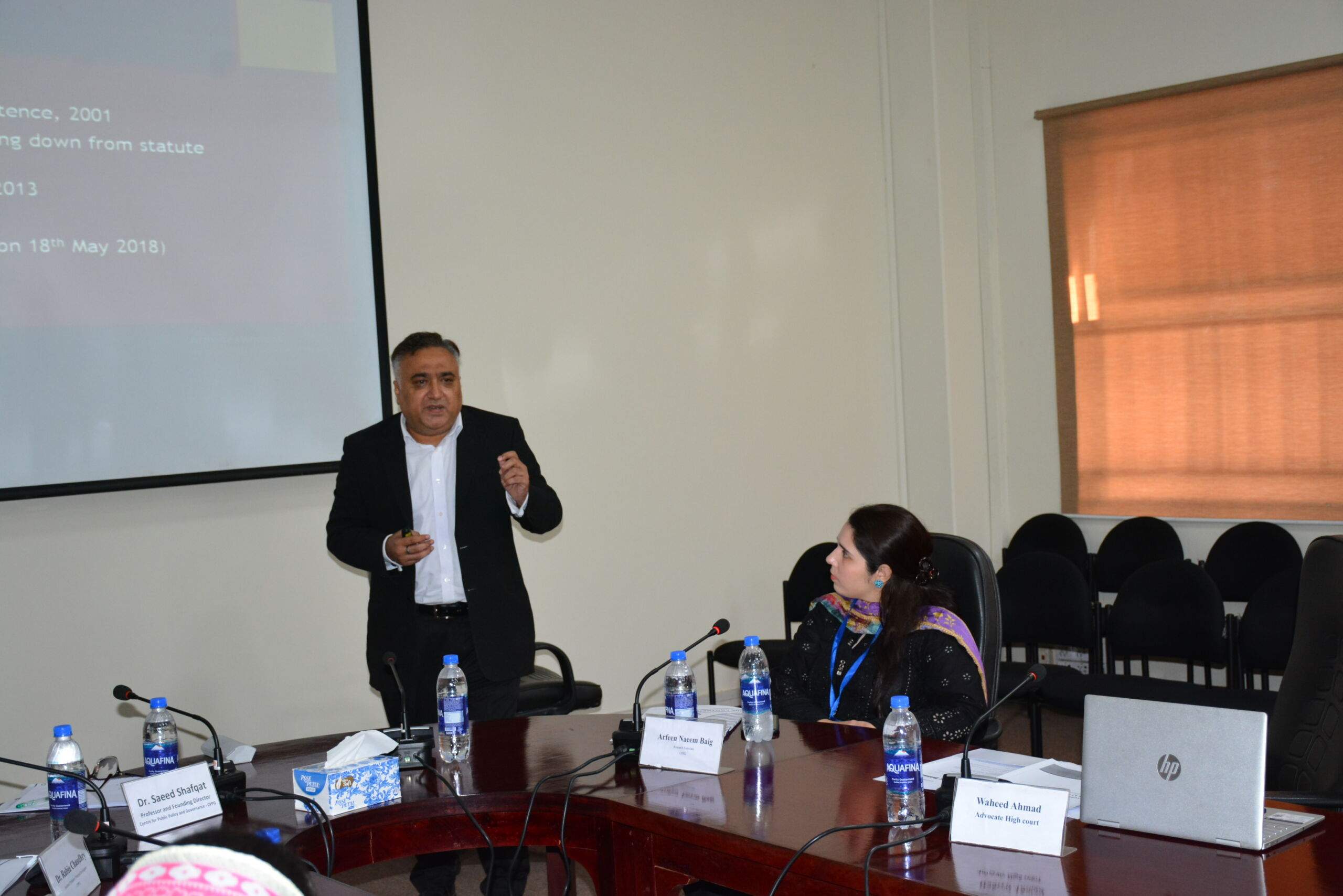
 Jul 6, 2023 - 3:00 pm
| Jul 6, 2023 - 5:00 pm
Jul 6, 2023 - 3:00 pm
| Jul 6, 2023 - 5:00 pm
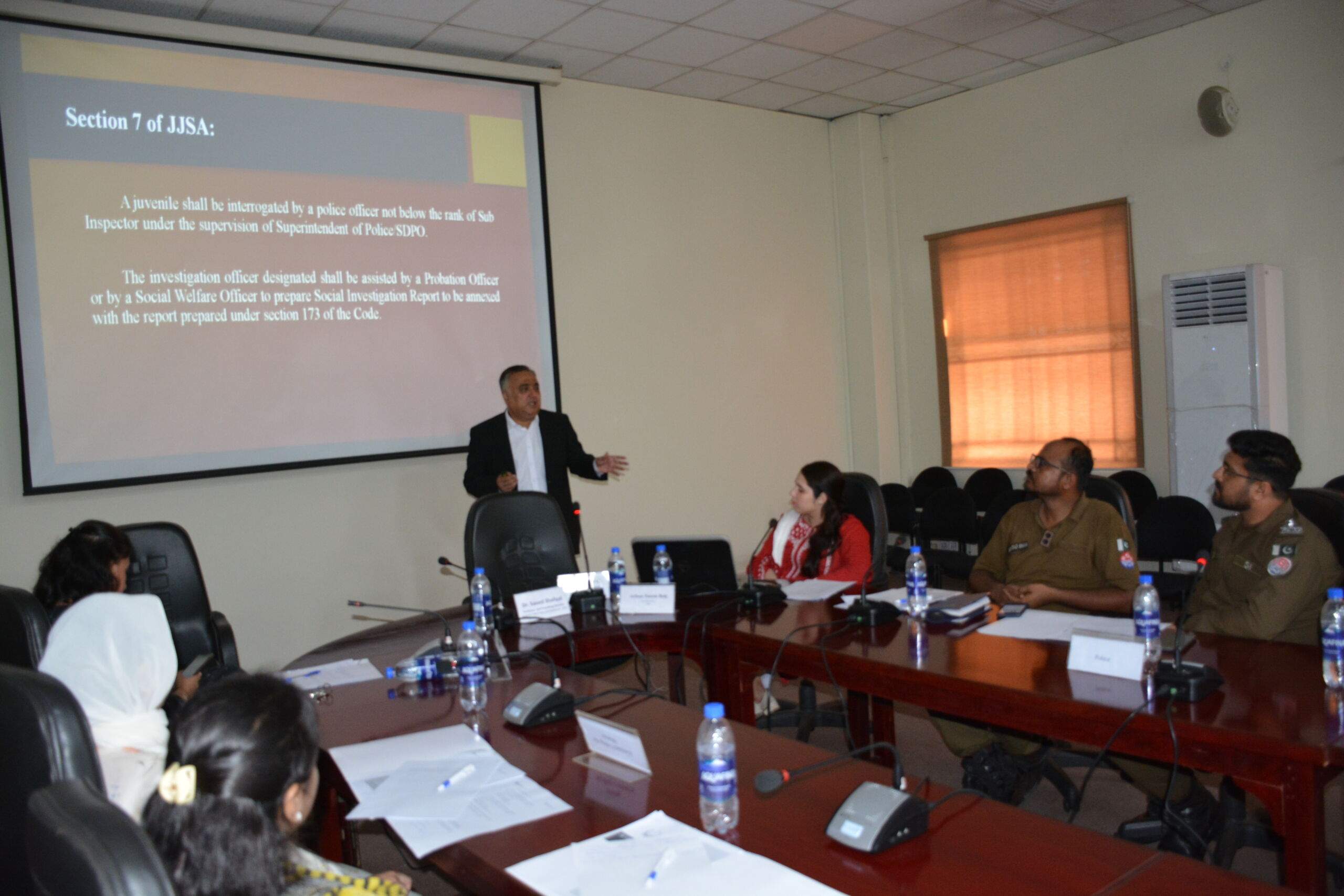
 Jul 12, 2023 - 3:00 pm
| Jul 12, 2023 - 5:00 pm
Jul 12, 2023 - 3:00 pm
| Jul 12, 2023 - 5:00 pm
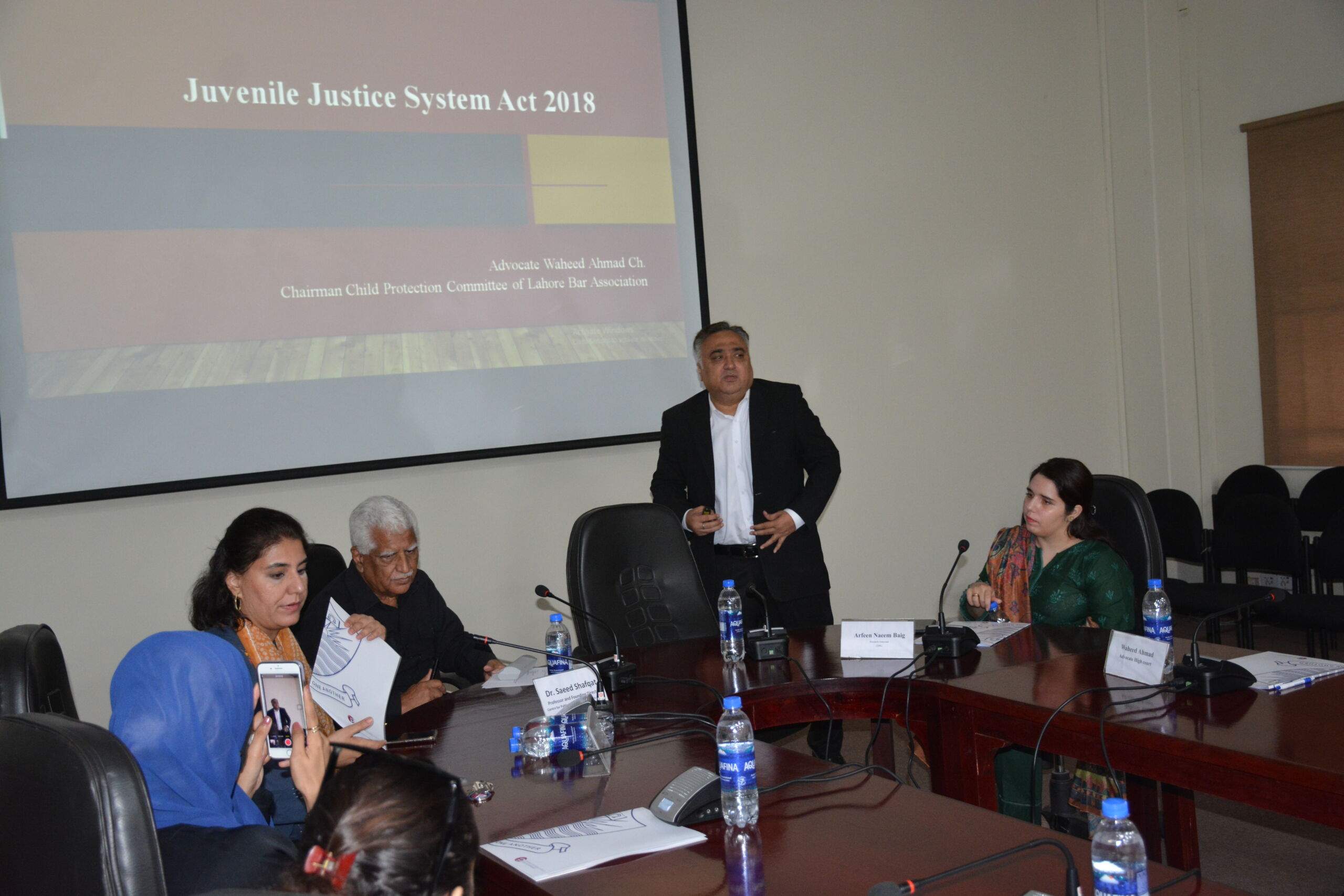
 Jul 19, 2023 - 4:00 pm
| Jul 19, 2023 - 6:00 pm
Jul 19, 2023 - 4:00 pm
| Jul 19, 2023 - 6:00 pm
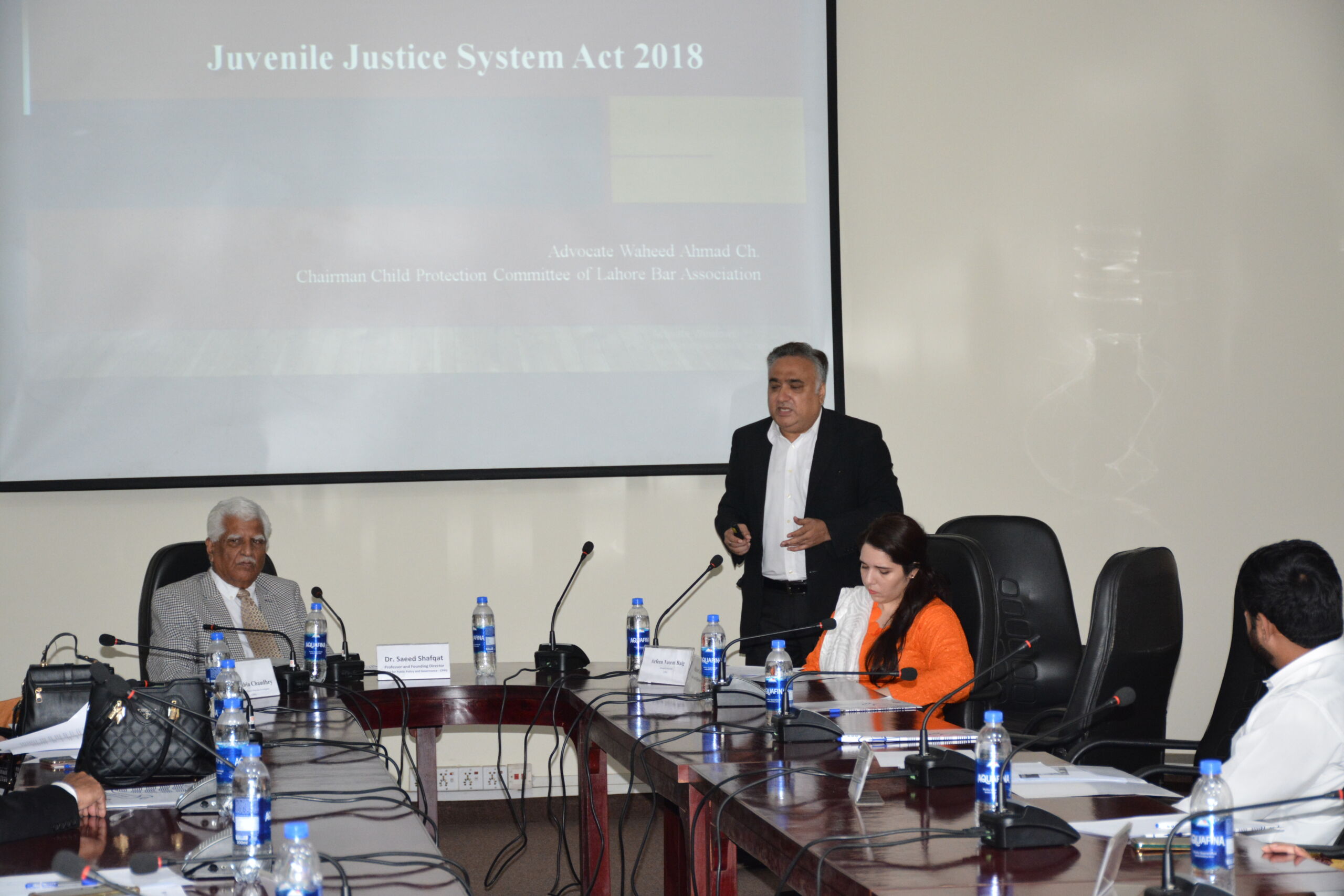
 Jul 26, 2023 - 3:00 pm
| Aug 9, 2023 - 5:00 pm
Jul 26, 2023 - 3:00 pm
| Aug 9, 2023 - 5:00 pm
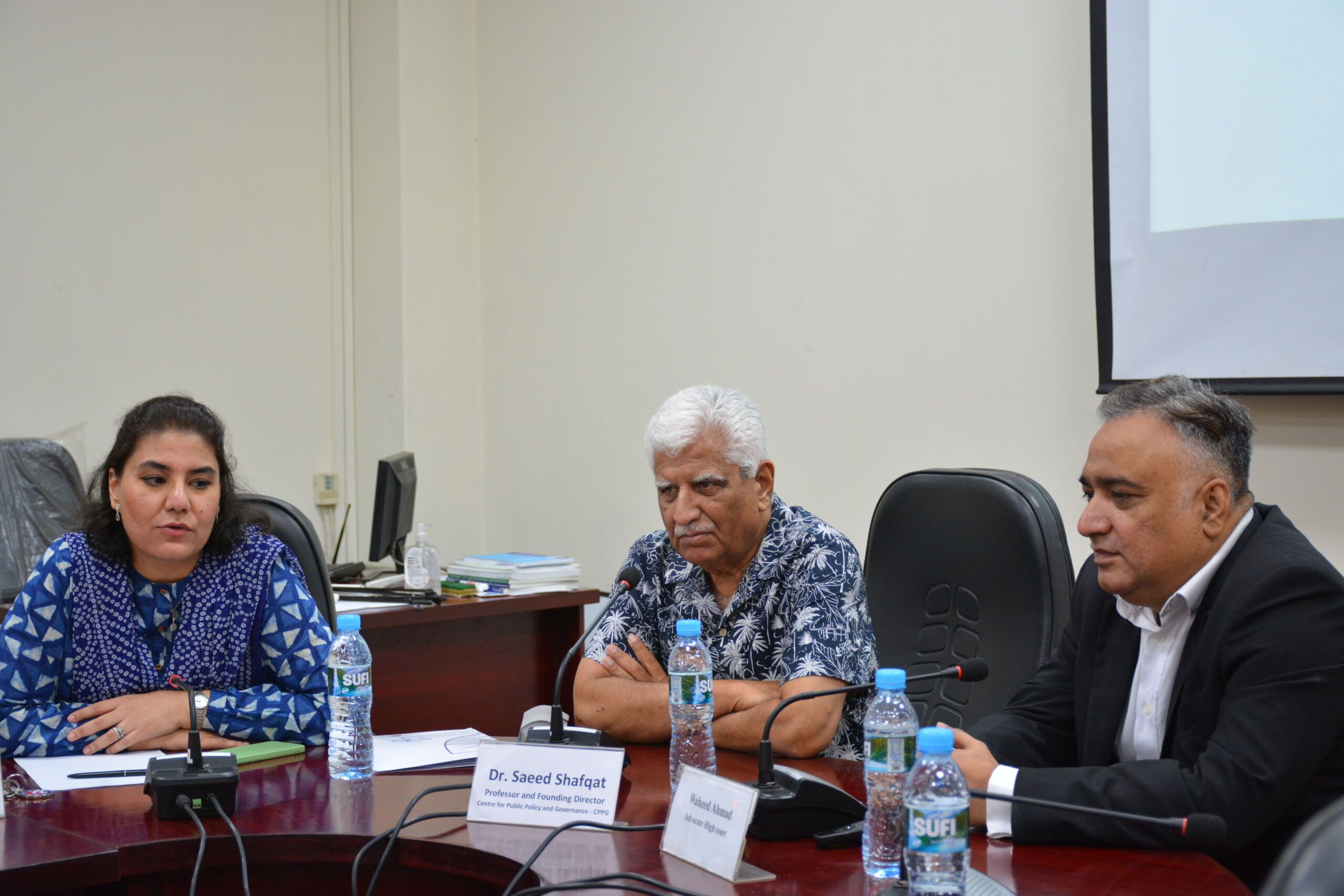
 Aug 3, 2023 - 3:00 pm
| Aug 3, 2023 - 5:00 pm
Aug 3, 2023 - 3:00 pm
| Aug 3, 2023 - 5:00 pm
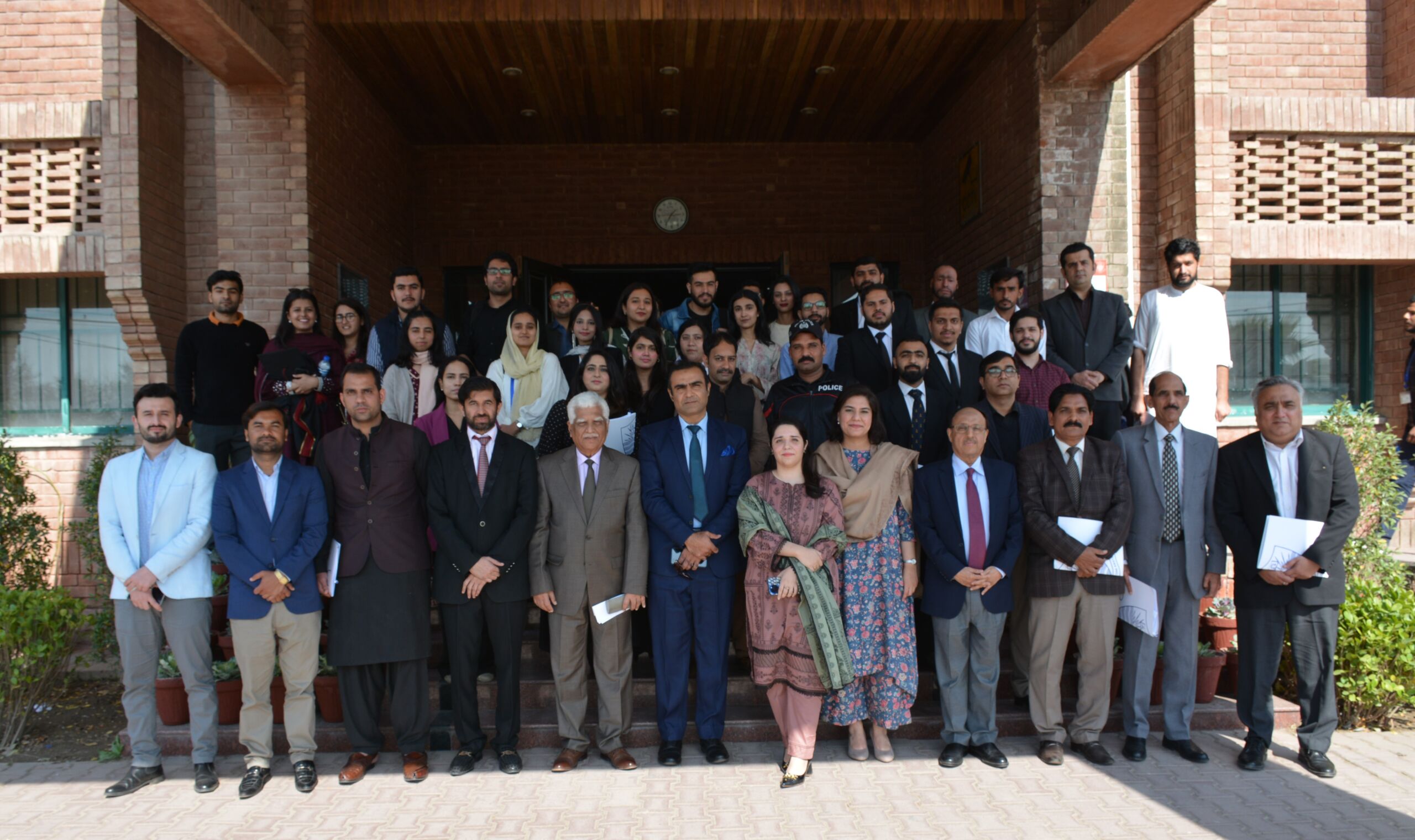
 Feb 22, 2024 - 11:00 am
| Feb 22, 2024 - 2:00 pm
Feb 22, 2024 - 11:00 am
| Feb 22, 2024 - 2:00 pm
Project Team

Assistant Professor


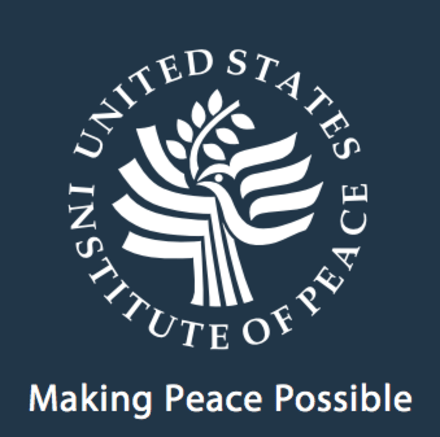 United States Institute of Peace (USIP)
United States Institute of Peace (USIP)